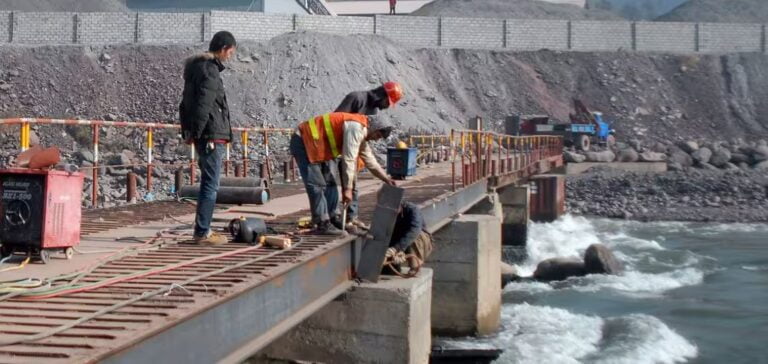Pakistan is stepping up its efforts to revitalize over 1,800 MW of hydropower projects and attract new Chinese investment.
New CPEC Initiatives
Pakistan is actively engaging Chinese leaders to revive large-scale hydropower projects and attract fresh investment in its energy infrastructure. This initiative is part of the second phase of CPEC. It aims to modernize and diversify the country’s energy mix. The Pakistani authorities are working hard to convene a meeting of the Joint Cooperation Committee (JCC) to ensure the success of Prime Minister Shehbaz Sharif’s forthcoming visit to Beijing.
Pakistani delegation in China
A high-level delegation, led by Planning Minister Ahsan Iqbal, is currently in China to persuade existing investors. It also aims to attract new companies to the transmission and distribution sector. Key projects include the Kohala (1,124 MW) and Azad Pattan (700 MW) hydroelectric plants, delayed due to financial and insurance difficulties.
Commitments and cooperation
The Pakistani delegation met the heads of three major Chinese companies specializing in power transmission and distribution. Chinese companies presented their skills and practical applications in other countries. Chinese experts are due to meet Pakistani energy officials and analyze detailed data to provide informed advice. These discussions will provide a solid basis for high-level talks between China and Pakistan.
Challenges and opportunities
Pakistan wants to diversify its energy mix by integrating more renewable energies. The Pakistani government’s vision is to rekindle the initial momentum of the CPEC project and make a firm commitment to the high-quality development of this economic corridor. The two parties discussed new initiatives to improve the energy management system, reduce line losses and diversify power generation sources.
Hydroelectric Projects and Safety
Minister Ahsan Iqbal requested China’s continued cooperation in the rapid implementation of the Azad Pattan and Kohala hydropower projects. The delegation also assured China that measures had been taken to reinforce the safety of Chinese nationals working on several projects in Pakistan. Cooperation between Pakistan and China under the second phase of CPEC promises to strengthen Pakistan’s energy infrastructure, while promoting the transition to cleaner, more sustainable energy sources. This strategic collaboration is essential for Pakistan’s economic growth and energy independence.






















